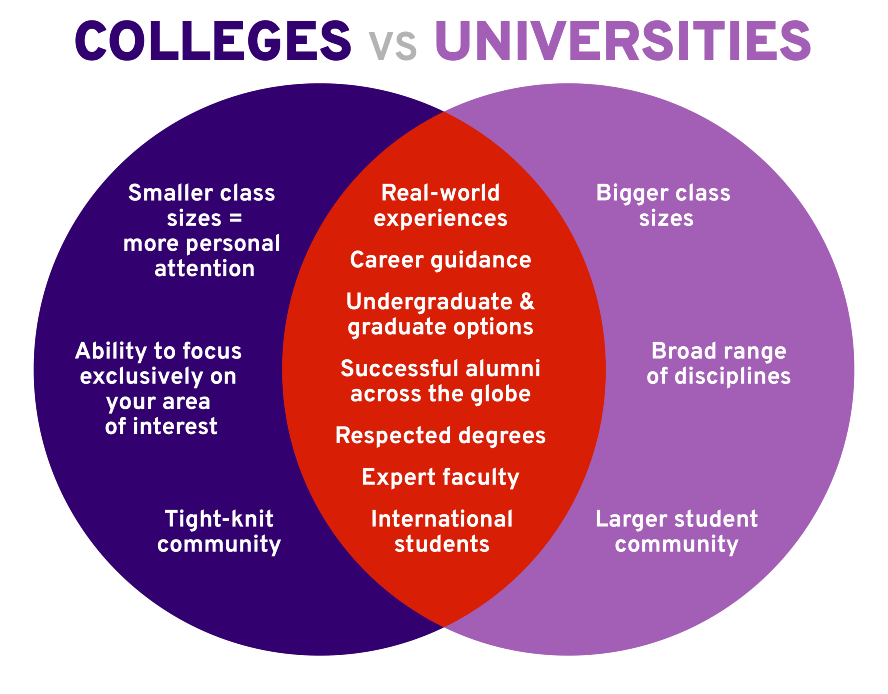In this blog post, we'll explore the benefits of both colleges and universities to help you make an informed decision that aligns with your academic and personal goals.

Some Advantages of Colleges
Smaller Class Sizes
One of the most significant advantages of choosing a college is smaller class sizes. This environment allows for more personalized attention from faculty, which can be incredibly beneficial for students who would like interaction with, and direct feedback from, their professors and instructors.
Personal Attention from Staff
Colleges are frequently known for their close-knit communities where student support staff members are more accessible. This can lead to stronger relationships with mentors and advisors, providing a supportive network throughout your academic career.
Focus on Area of Interest
Colleges often offer specialized programs that allow students to focus intensely on their specific area of interest. If you have a clear idea of what you want to study, a college might provide the concentrated curriculum and expertise you need.
Tight-Knit Community
The smaller student body at colleges often fosters a sense of community and belonging, especially in a big city like New York. This close-knit environment can make it easier to form lasting friendships and build a strong support system.
Some Advantages of Universities
Broad Range of Majors and Areas of Study
Universities typically offer a broader range of majors and programs, making universities an excellent choice for students who are undecided or interested in multiple disciplines.
Advanced Research Opportunities
Universities are at the forefront of research. If you're interested in pursuing research, a university can provide the resources, facilities, and faculty expertise needed to support your academic inquiries.
Sports Teams
In the U.S. many major research universities also have extensive sports programs, with huge stadiums on campus, and basketball, American football, and other sports matches/games often played in front of a live national television audience. Just a few of the biggest names in sports at this level include the University of Texas, Stanford University, the University of Michigan, the University of Georgia, and Ohio State University.
Shared Advantages of Colleges and Universities
Respected Degrees
Degrees from U.S. colleges AND universities are respected by employers worldwide.
International Students and Alumni
Both colleges and universities attract international students and boast alumni networks. These connections can provide valuable opportunities for networking, internships, and employment around the globe.
Career Development Services
Both colleges and universities typically offer robust career development services. These may include resume workshops, interview preparation, job fairs, and internship placements, all designed to help you transition smoothly from academia to the professional world. At LIM College, graduates receive career services for life!
Real-World Experience
Internships may be available in both college and university programs on the undergraduate level as well as in graduate programs. Internships provide hands-on experience in your field of study, allowing you to apply theoretical knowledge in real-world settings and build a professional network.
Conclusion
Choosing between a college and a university ultimately depends on your personal preferences, academic goals, and desired type of experience. Colleges offer a more intimate, focused environment, while universities provide broader academic options and greater opportunities for research. Both types of institutions can offer valuable opportunities for growth, learning, and career development.
If you're still unsure which path to take, consider reaching out to current students or alumni from both types of institutions. Their firsthand experiences can provide additional insights to help you make the best decision for your future.
Ready to take the next step and study the business of fashion in the U.S.?



